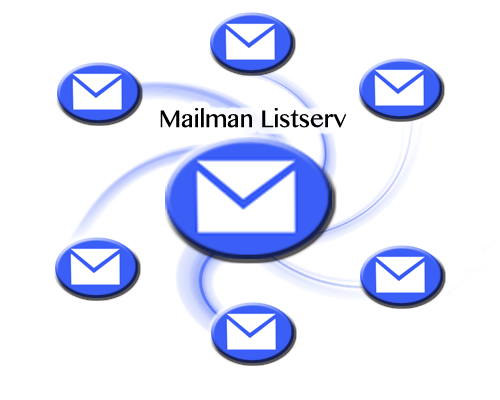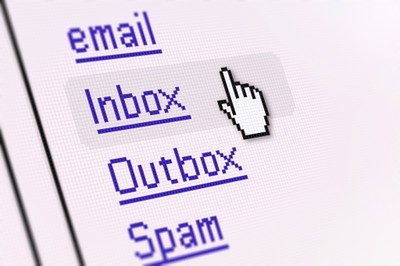We Need A New Listserv. Your Input Needed.
Yale retired our old system. Which of the new offerings should we use?
 One of the lesser-known tools for communicating with other members of our class is the class listserv.[note 1] It hasn’t been used very frequently over the past couple of years. Frankly, the old version was clunky, slow, hard to use, and ugly. It hasn’t been supported for several years. Email addresses weren’t updated. New members were not accepted. It’s not surprising that it fell into disuse.
One of the lesser-known tools for communicating with other members of our class is the class listserv.[note 1] It hasn’t been used very frequently over the past couple of years. Frankly, the old version was clunky, slow, hard to use, and ugly. It hasn’t been supported for several years. Email addresses weren’t updated. New members were not accepted. It’s not surprising that it fell into disuse.
What is a listserv, you ask? Well, it’s just a piece of software that manages a mailing list of its members. Any member of the list can send an email to a single, special email address, and that message will be forwarded to all the other members on the list.
What do 69ers want from a listserv? We already have the newsletter, which is sent periodically to all class members, as well as the Class Notes that appear in the Yale Alumni Magazine. Do we really need a listserv, too?

Well, sometimes, members of the class want to alert other members of something of general interest. Here’s an example: In 2018, Macon Cowles wanted to ask about a gizmo that the Yale Alumni office sent to all of us. The discussion was so interesting that we wrote a story about it here.
Sometimes classmates may want to share a quick update about a life event—such as the birth of a grandchild, a remarriage, a death, a recognition or award, or a retirement. Other times, you may wish to share a polished piece of work that doesn’t quite warrant a full story on Yale1969.org or a mention in the newsletter. For example, some classmates have submitted wonderful poems, but since they weren’t published, I didn’t include them in the newsletter. However, they would make a nice attachment to an email going to the members of the listserv.
Some of you may remember that in the early 2010s, the listserv evolved into a shouting fest, with classmates arguing over political issues or religious doctrine. The class officers urged all members to avoid these topics because, after a certain point in their lives, you really can’t change people’s minds too much.
 What happens next? The class officers asked me to replace the listserv that Yale just dropped with one that we control. I’m looking at two packages: GNU Mailman 2.1 and WP Mailster. (If you know of other packages or have input, please advise.) I’m testing them to ensure that they are easy to use, easy for me to administer (smile), and secure. Stay tuned for the choice and the launch of the new listserv.
What happens next? The class officers asked me to replace the listserv that Yale just dropped with one that we control. I’m looking at two packages: GNU Mailman 2.1 and WP Mailster. (If you know of other packages or have input, please advise.) I’m testing them to ensure that they are easy to use, easy for me to administer (smile), and secure. Stay tuned for the choice and the launch of the new listserv.
In the meantime, please send me input and feedback (to support@Yale1969.org ) about the following items.
- Content Moderation. Our listserv will be restricted to members only, and only members can send emails to the class. I don’t want to act as a content cop; I hope we can all rely on each other to keep topics relevant to general interest and maintain civility, constructiveness, and conciseness in our comments. Simple courtesy should guide our discussions. Do you have any advice about how to do content moderation for a group like ours?
- Opt-In / Opt Out. Since we lost all the email addresses on the old listserv when Yale dropped its support, I’ll launch the new one by adding everyone to the list but making it super-easy to opt out. Thereafter, it will be an opt-in list only. Any objections
- “Digest” or Regular. Most packages let recipients receive emails from the list immediately, one at a time, as they are sent. Alternatively, recipients can choose to receive all emails in a “Daily Digest.” I plan to set the default option to “regular” for everyone but include instructions in the footer that’s added to every email on how to select the daily “Digest” mode instead. Is this too complex? Should we just set it to “regular” and eliminate the “Digest” option?
- Features. Here are the features we are planning. Any others?
- Add “[Yale69]” to the subject line so the recipient knows the message is from the listserv.
- Show the name and email of the classmate who is the sender in the “From” field. (The alternative is showing the Mailing List name as the sender.)
- Allow HTML (rich text and pictures) in the body of the email.
- Allow forwarded emails to be sent to the listserv.
- Allow PDFs and pictures as attachments. For security reasons, I’ll block .exe, .zip, and similar files that might inadvertently contain malware.
- Do not expose the email addresses of list members or the archives of prior conversations to anyone other than admins. List members will not be able to see the archives or email addresses of other members.
Thank you for your patience. This turns out to be a lot of work to get this right.
– – – – –


I don’t know anything about the examples given. I did think the old ListServe had its place. The stigma aside, a Group FaceBook page would also serve the purpose.
RE Content Moderation, would a feature that allowed some sort of suspension if a threshold of problematic messages is reached be ok? I really didn’t like how the old Listserve deteriorated. I imagine a parking lot for objections and complaints. If the number of issues raised about messages from a certain sender reached the threshold, the person would lose privileges for a period. I don’t think it would be triggered often – it’s presence would act as a caution.
Previous listservs have foundered because of ideological screeds. If there is a way to ethically exclude these, a listserv might be more viable.
“Digest”—Given the embarrassingly high volume of my emails that continues, I would greatly appreciate your maintaining the Daily Digest feature.
1). Seems like content moderation, no matter how well done, is a lot of work and may well result in some being pissed off, with gradual decay of the list. No moderation will also piss off some, but is a lot less work,!and may also lead to decay if the list. My choice: less work, and let’s hope we are all mature enough and more savvy about the interweb than we were 25 years ago. No moderation.
2) opt in/out – nice plan.
3) digest – yes, some will prefer it.
4) features – all nice. Thanks for working this up Wayne.
I exposed a list of friends by forwarding an email.
How do we avoid exposing the emails on the list? Ideally, the system has this safeguard to prevent the danger of the last point above. Specifically, I will have to learn about archives before it is clear how I avoid the error a second time.
Wayne, you deserve a Yale Medal for setting us up in the 21st Century. The new culture needs ambassadors, of which you are a crucial one for me.
Bemis is mostly right below, but restrictions remain attractive. We need an editor, like in the old journalism. I nominate Federal Judges Woodlock and Thompson, both of whom are growing idle in senior status from the bench. If anyone can figure out our rhetorical limits to “free” speech it is they.
Digest yes
I am getting these Listserv messages in my junk folder, with zero clue what to do with them. Nothing seems to open.
Does anyone have a suggestion?